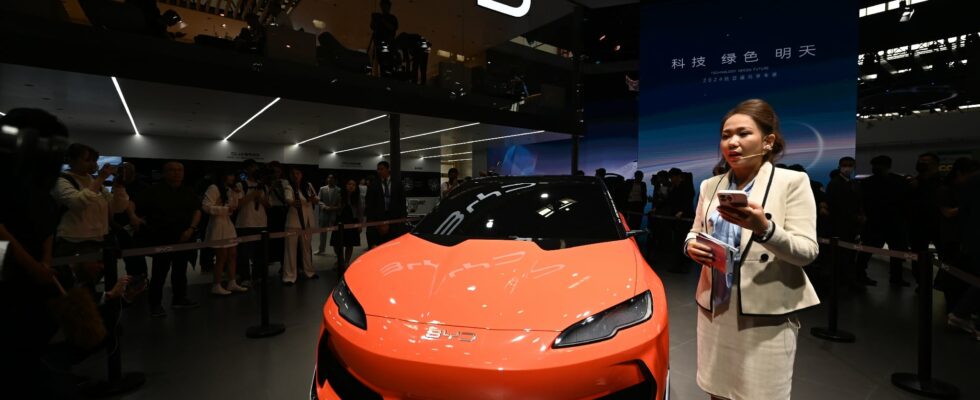China is at the forefront of robotaxis, with AutoX, Baidu Apollo, Didi Chuxing, Pony.ai and WeRide, which together have more than 2,000 fully automated taxis. In Wuhan, the large metropolitan area in the center of the country, whose population – more than 12 million inhabitants – is equivalent to that of the Ile-de-France region, Baidu Apollo’s 500, and soon 1,000, robotaxis cover an area of 3,000 km².
Baidu CEO Robin Li said in May that 70% of its fleet’s rides were fully autonomous, and that this share would reach 100% in the coming quarters, allowing the company to break even. These figures are not far from the feats achieved by American companies Waymo, a subsidiary of Alphabet, and Cruise, a subsidiary of General Motors. Today, 250 vehicles are already plying the streets of San Francisco, 150 in Phoenix, and a license for 50 vehicles in Los Angeles has been granted.
Self-driving taxis are categorized as Level 4 technologies: they drive without human supervision and without the speed restrictions that define Level 3. But they remain expensive to manufacture and operate. The transition from Level 2 to Level 3 on vehicles accessible to consumers is potentially more significant. While German manufacturers Mercedes-Benz and BMW are starting to sell Level 3 systems in Germany, they are very limited. China seems ready to go much further, knowing that the lead it has gained will be difficult to catch up. Official measures are coming one after the other to open the door to all sorts of experiments.
Green light for Tesla
In December 2023, China’s first regulation on the commercial operation of autonomous vehicles came into effect. In late April, Elon Musk obtained government approval to deploy the latest version of his Full Self-Driving (FSD) technology in his Teslas, after striking a deal with Chinese artificial intelligence company Baidu to map the country. August 8, considered a lucky number, was mentioned as the date for the actual implementation. Local electric vehicle manufacturers were already starting to offer their own driver assistance programs, to help the cars navigate cities. But Tesla is still the benchmark in this young industry, and this approval will boost the sector.
On June 4, China’s Ministry of Industry and Information Technology issued nine permits to test Level 3 automated driving on public roads. In short, the human driver no longer needs to pay attention, subject to certain conditions, which transfers responsibility to the carmaker. The winners include prominent electric vehicle manufacturers such as BYD and Nio, as well as ride-hailing services, freight trucks and public buses, to test the technology as widely as possible.
Connected routes
More recently, on July 3, the government unveiled a list of 20 cities that will oversee the construction of smart, connected roads that can communicate in real time with autonomous vehicles to help them make better decisions. A few of the cities on the list have already started work. Wuhan, a pioneer in the field, recently budgeted $2.3 billion for an infrastructure project after opening 3,379 kilometers of roads for testing. One county in the mountainous city of Chongqing, Yongchuan, has approved 1,446 kilometers of two-way test roads.
The message is clear. The Chinese government is ready to give its full support to the autonomous vehicle industry. Even if it means accepting the unpopularity of this choice with the 10 million drivers who transport passengers and the 20 million others who transport goods. Two corporations that do not look favorably on the large-scale deployment of automatic piloting.
Robin Rivaton is CEO of Stonal and member of the scientific council of the Foundation for Political Innovation (Fondapol)
.
